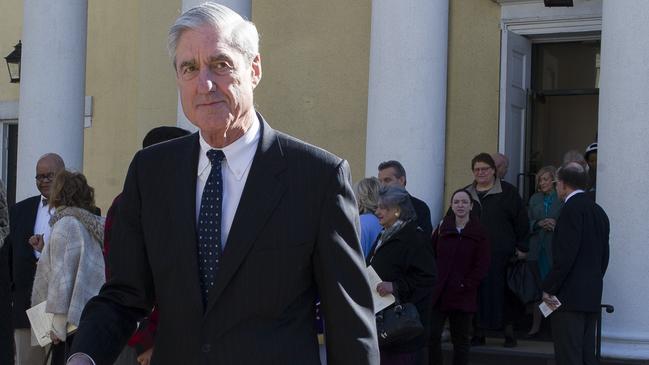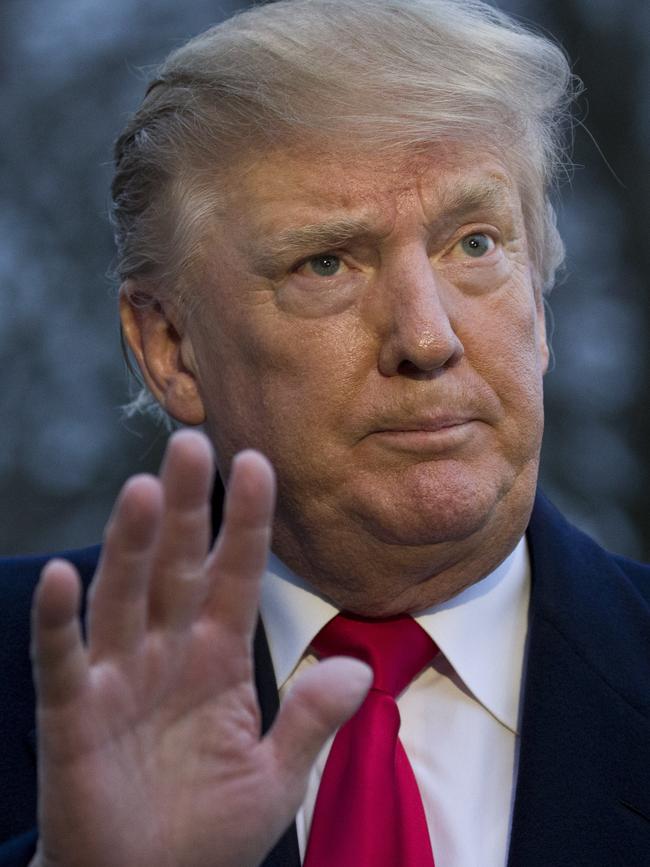Mueller report ends conspiracy theory

“The Special Counsel’s investigation did not find that the Trump campaign or anyone associated with it conspired or co-ordinated with Russia in its efforts to influence the 2016 US presidential election,” Mr Barr wrote in a four-page letter to the Judiciary Committees of the House and Senate.
Mr Barr’s letter also said that Mr Mueller investigated the evidence of whether Mr Trump obstructed justice but made no “prosecutorial judgment.” Mr Barr said that he and Deputy Attorney-General Rod Rosenstein examined that evidence and concluded there is nothing sufficient to prove that the President “engaged in obstructive conduct.” Mr Trump called all this an “exoneration,” and it certainly looks to be, but it’s worth stepping back from the partisan claims for some larger political context.
The Russia conclusion in particular ought to be good news to all Americans. Mr Mueller spent two years and the vast resources of the FBI and Justice Department to search for “collusion.” He found ample evidence that Russia did try to influence the election. But he found that no one in the Trump campaign “co-ordinated with the Russian government in these efforts, despite multiple offers from Russian-affiliated individuals to assist the Trump campaign,” Mr Barr wrote.

This lifts the cloud over the 2016 election that authoritarians like Vladimir Putin hope to promote with their meddling in democracies. It means no Trump officials abetted the hack into Democratic emails, and no Trump officials conspired with WikiLeaks (Roger Stone’s fantasies aside). The conclusion should restore a measure of public confidence in our political system and the integrity of U.S. elections. Imagine the political crisis had Mr Mueller found the opposite?
The end of the collusion illusion should also cause the media to do some soul-searching about rushes to judgment. For two years, with the help of ex-Obama officials, they spun anecdotes of contacts between Russians and Trump campaign advisers into a conspiracy. With few exceptions they went well beyond First Amendment oversight into anti-Trump advocacy. But it was always odd that those individual Russia-Trump contacts never added up to anything or went anywhere, which is why we warned about waiting for the facts.
Many in the press also took Mr Trump’s denunciations against the investigation and his odd solicitousness for Mr Putin as an admission of guilt. But Mr Trump is often his own worst enemy, and bursts of ego and anger aren’t evidence of anything but predictable Trump behaviour.
The question has always been whether Mr Mueller would be able to connect those anecdotes into a larger conspiracy, but now we know he could not. By the way, Mr Mueller’s probe is the third to find no Russia-Trump collusion, following the House and Senate Intelligence Committee findings. Perhaps the press corps will finally take no conspiracy for an answer.
As for obstruction of justice, some Democrats will assert that Mr Mueller’s failure to reach a conclusion justifies more investigation. They will demand to see the evidence Mr Mueller compiled, though most of this is already in the public domain since it concerned the firing of James Comey as FBI director. And they will claim that Messrs. Barr and Rosenstein are politically conflicted.
But note that Mr Barr says that he and Mr Rosenstein took into account that Mr Mueller found that “the evidence does not establish that the President was involved in an underlying crime related to Russian election interference,” which bears on motive. Without an underlying crime, what was Mr Trump trying to cover up?
Mr Barr says he and Mr Rosenstein reached their judgment about obstruction without getting to the constitutional issue of whether a sitting President can be indicted. But in our view Mr Trump had every right as President to fire Mr Comey for whatever reason he saw fit. The Constitution gives the President the power to hire and fire at will, and it cannot be illegal to perform an act that the Constitution says is legal, no matter the motive.
House Democrats will have to decide what to do with all this, and their first resort will be a demand to see the entire report. Mr Barr in his letter again promised to disclose as much as he can subject to grand-jury secrecy and other Justice rules. But we also hope he includes in his disclosures the documents that explain how this entire Russia conspiracy story began at the FBI and inside the Obama Administration. With Mr Mueller’s conclusions, we now know that someone may have conned the FBI into one of the great dirty tricks in American political history.
The Mueller report won’t end this rancorous period in American politics, but at least it should put the Russia conspiracy file to bed. And for that we can all be grateful.
The Wall Street Journal





Well, so much for the claim that Donald Trump or his campaign conspired with Russians to steal the American Presidency. That conspiracy theory, which has distorted American politics for more than two years, expired in an instant on Sunday when Attorney-General William Barr delivered Special Counsel Robert Mueller’s “principal conclusions” to Congress.